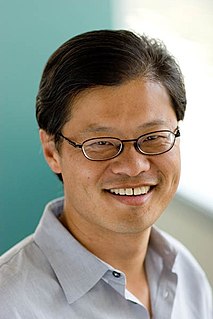A Quote by Jerry Saltz
Art is good, bad, boring, ugly, useful to us or not. It does or doesn't disturb optical monotony, and succeeds or fails in surmounting sterility of style or visual stereotype; it creates new beauty or it doesn't.
Related Quotes
As a composer, I believe that music has the power to inspire a renewal of human consciousness, culture, and politics. And yet I refuse to make political art. More often than not political art fails as politics, and all too often it fails as art. To reach its fullest power, to be most moving and most fully useful to us, art must be itself.
In a sense, the first (if not necessarily the prime) function of a novelist, of ANY artist, is to entertain. If the poem, painting, play or novel does not immediately engage one's surface interest then it has failed. Whatever else it may or may not be, art is also entertainment. Bad art fails to entertain. Good art does something in addition.
Beauty—or the desire to be beautiful—is in itself a dangerous motivation. Someone (I forgot who) once said, ‘Does the person who loves someone for their beauty really love them?’ So don’t focus on beauty ... a respectable appearance is sufficient to make people more interested in your soul. It is the sum of our experiences that makes us interesting, and having been through a time in your life in which you were in a bad place (or what you perceived as a bad place) physically, can be useful. It can even be necessary.
The popular distinction between 'constructive' and 'destructive' criticism is a sentimentality: the mind too weak to perceive in what respects the bad fails is not strong enough to appreciate in what the good succeeds. To be without discrimination is to be unable to praise. The critic who lets you know that he always looks for something to like in works he discusses is not telling you anything about the works or about art; he is saying 'see what a nice person I am.
The task of art is to take hold of the shining, the radiance, the manifestation, of that which as spirit weaves and lives throughout the world. All genuine art seeks the spirit. Even when art wishes to represent the ugly, the disagreeable, it is concerned, not with the sensory - disagreeable as such, but with the spiritual which proclaims its nature in the midst of unpleasantness. If the spiritual shines through the ugly, even the ugly becomes beautiful. In art it is upon a relation to the spiritual that beauty depends.
It hardly needs explaining at length, I think, how much authority or beauty is added to style by the timely use of proverbs. In the first place who does not see what dignity they confer on style by their antiquity alone?... And so to interweave adages deftly and appropriately is to make the language as a whole glitter with sparkles from Antiquity, please us with the colours of the art of rhetoric, gleam with jewel-like words of wisdom, and charm us with titbits of wit and humour.


































